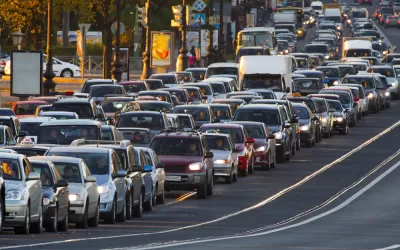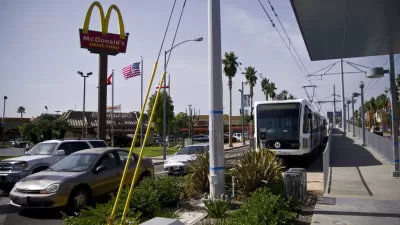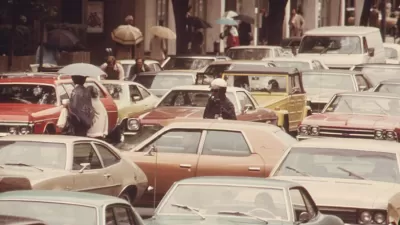Passenger vehicle ownership and vehicle miles traveled per person and per household remain below their historic peaks set in 2006 and 2004, respectively, but they have been on the upswing for the past four to five years, according to new data.

University of Michigan transportation researcher Michael Sivak released his 10th "peak motorization" report last month [see abstract (pdf)] in a series that began June 2013. Sivak, who founded and directs Sustainable Worldwide Transportation at the University of Michigan Transportation Institute (UMTRI), focuses on two aspects of "peak car:" changes in ownership of passenger vehicles and distance driven, or vehicle miles traveled (VMT).
Both are measured as rates, per person and per household, as opposed to total VMT, which the Federal Highway Administration reports monthly in Traffic Volume Trends. The period examined was 1984 to 2016.
- Auto ownership per person measured 0.766 in 2016, highest since 2008. Measured per household, it was 1.968, highest since 2009. [Peaks for both rates were set in 2006]
- VMT per person was 8,819 miles, highest since 2007. Measured per household, it was 22,649 miles, also highest since 2007. [Peaks for both rates set in 2004]
Southern California comparison
According to research released last month by the UCLA-Institute of Transportation Studies on causes for the decline in public transit ridership in Southern California, increased auto ownership was the primary reason.
Between 2000 and 2015, private vehicle ownership dramatically increased among households in the Southern California Association of Governments region, from 1.7 to 2.4 vehicles per household.
Contrast those nationwide rates provided by Dr. Sivak: 2.031 vehicles per HH in 2000 to 1.950 per HH in 2015. The UMTRI data would appear to more than verify the findings of UCLA-ITS in pointing to increased car ownership as the primary reason for the decline in transit ridership in Southern California.
FULL STORY: On the road again: Vehicle ownership, miles driven continue to rise

Alabama: Trump Terminates Settlements for Black Communities Harmed By Raw Sewage
Trump deemed the landmark civil rights agreement “illegal DEI and environmental justice policy.”

Study: Maui’s Plan to Convert Vacation Rentals to Long-Term Housing Could Cause Nearly $1 Billion Economic Loss
The plan would reduce visitor accommodation by 25% resulting in 1,900 jobs lost.

Planetizen Federal Action Tracker
A weekly monitor of how Trump’s orders and actions are impacting planners and planning in America.

Federal Homelessness Agency Places Entire Staff on Leave
The U.S. Interagency Council on Homelessness is the only federal agency dedicated to preventing and ending homelessness.

Restoring Northern India’s Himalayan ‘Water Temples’
Thousands of centuries-old buildings protect the region’s natural springs and serve as community wells and gathering places.

Milwaukee to Double Bike Share Stations
Bublr Bikes, one of the nation’s most successful, will add 500 new e-bikes to its system.
Urban Design for Planners 1: Software Tools
This six-course series explores essential urban design concepts using open source software and equips planners with the tools they need to participate fully in the urban design process.
Planning for Universal Design
Learn the tools for implementing Universal Design in planning regulations.
Caltrans
Smith Gee Studio
Institute for Housing and Urban Development Studies (IHS)
City of Grandview
Harvard GSD Executive Education
Toledo-Lucas County Plan Commissions
Salt Lake City
NYU Wagner Graduate School of Public Service




























